July and August Highlights from the Humanities and Social Sciences Communities
Published in Social Sciences, Behavioural Sciences & Psychology, and Arts & Humanities
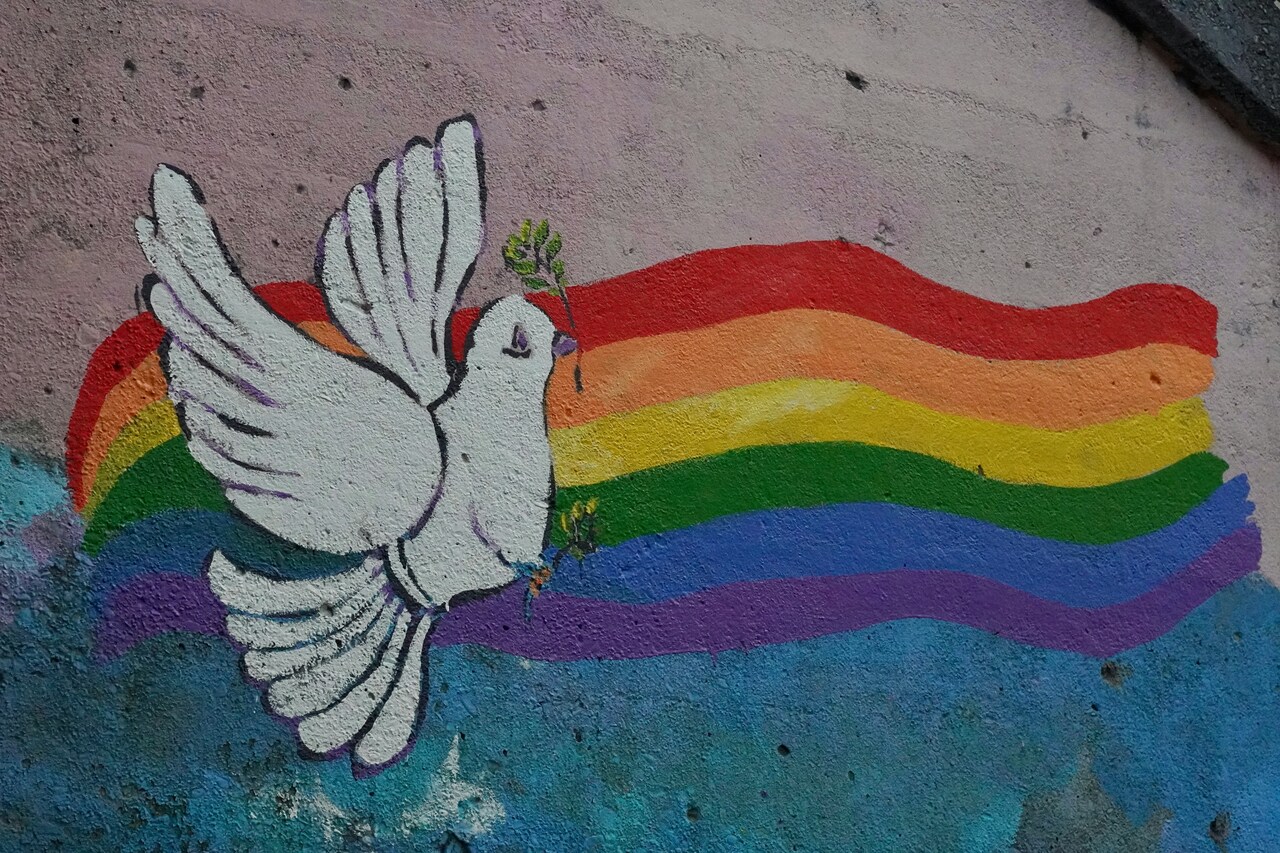
From cooperative innovation to humanitarian action and gender equality, these July and August awareness days highlight how global challenges intersect with social responsibility, public policy, and scientific research. Drawing on recent blog posts, we explore stories that showcase resilience, fairness, and the contributions of often-overlooked voices worldwide.
International Day of Cooperatives (CoopsDay)
Marked on the first Saturday of July, the International Day of Cooperatives was proclaimed by the United Nations in 1995 to highlight the role of cooperatives in advancing sustainable development and social inclusion. On 5 July 2025, during the UN International Year of Cooperatives, the day was celebrated with the theme “Cooperatives: Driving Inclusive and Sustainable Solutions for a Better World,” spotlighting people-centered enterprises as vital partners in building global resilient and equitable societies.
The Power of Sister City Cooperation 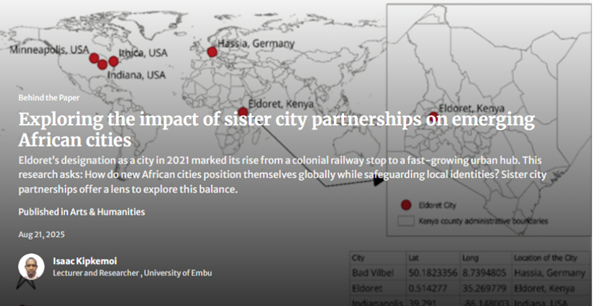
The spirit of cooperation is explored in a recent Behind the Paper blog post based on a study published in Discover Cities. @Isaac Kipkemoi explores how Eldoret, a newly designated city in Kenya, uses international partnerships to modernize while preserving its local identity. The blog demonstrates how sister city partnerships and collaborations are helping the city foster cultural exchange, economic growth, and urban resilience.
How did Eldoret, Kenya’s rapidly growing “City of Champions”, transform from a colonial railway stop into a thriving urban hub? Read the full blog post to discover reasons through the lens of sister city partnerships.
World Humanitarian Day
World Humanitarian Day, held on 19 August, was first established by the UN in 2008 to honour humanitarian workers killed in the 2003 Baghdad Canal Hotel bombing. Each year it highlights the courage of those who risk their lives to help others in crisis and calls for stronger protection of both aid workers and the communities they serve. In 2025, as part of the relaunch of the #ActForHumanity campaign, the UN urges global action against rising attacks, underfunding, and impunity that threaten the system meant to safeguard human dignity.
Understanding the Gaza Humanitarian Crisis 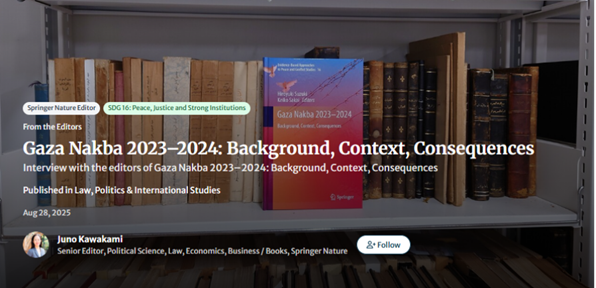
In a new blog, Senior Editor @Juno Kawakami interviewed volume editors of the book Gaza Nakba 2023–2024: Background, Context, Consequences, Hiroyuki Suzuki and Keiko Sakai. The book traces the historical, political, and humanitarian dimensions of the ongoing humanitarian crisis in Gaza. Emerging from a symposium at the University of Tokyo, the book situates the current war within a century of conflict and shows how Japanese scholarship contributes to international dialogue from a unique academic perspective. By documenting lived realities and fostering critical inquiry, the volume seeks to deepen understanding of one of the most severe humanitarian crises of the 21st century.
Read the full interview to explore the editors’ insights on the Gaza crisis. To delve deeper into the subject, read more in another interview blog on the political background of the Israeli-Palestinian conflict.
War, Infectious Disease, and Humanitarian Risk
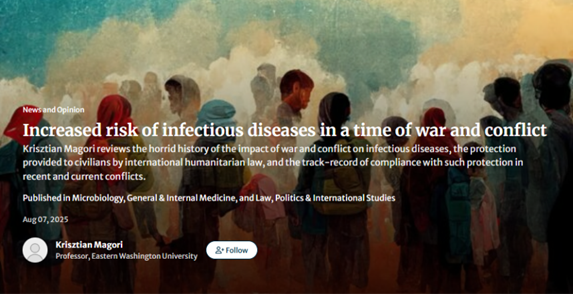
In a blog for BugBitten, @Krisztian Magori reviews how war and conflict increase the risk of infectious diseases by disrupting essential services like water, sanitation, food, and healthcare. Using historical examples and the ongoing crisis in Gaza, the post shows how war can trigger disease outbreaks, overwhelm hospitals, put medical staff at risk, and leave civilians extremely vulnerable. The blog also discusses the obligations of parties at war under international humanitarian law and the consequences when these protections fail.
Read the full blog post to learn about the connection between conflict, public health, and humanitarian issues.
Women's Equality Day
On 26 August, Women’s Equality Day is celebrated in the United States, marking over a century since the 19th Amendment granted some women the right to vote. In 2025, the Day draws global attention as the US prepares for its Universal Periodic Review at the United Nations. It highlights ongoing systemic inequalities – from child marriage to female genital mutilation and sexual exploitation – and offers a moment for international advocacy to strengthen protections for women and girls worldwide.
Who Should Be Saved First? 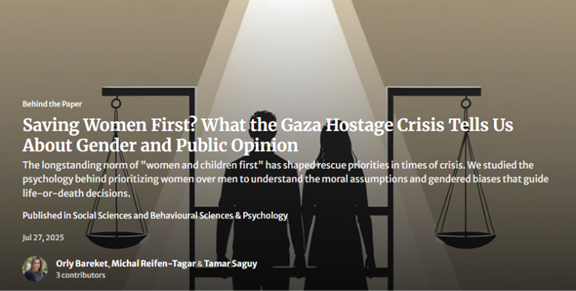
In a Behind the Paper post based on a study published in Communications Psychology, @Orly Bareket, @Michal Reifen-Tagar and @Tamar Saguy explore public attitudes during the 2023 Gaza hostage crisis, where women were prioritized for release. Their research shows that moral assumptions and gendered biases, such as the belief that women are especially vulnerable or need protection, strongly shaped Israeli public support for “women first” approach to hostage release. Cultural ideals like motherhood further influenced these judgments. The blog highlights how public perceptions of vulnerability and “benevolent sexism” can both protect and overlook lives, offering insights into fairness, moral reasoning, and the complexities of humanitarian decision-making.
Read the full blog to reflect on what fairness and protection really mean.
Women’s Hidden Contributions to Quantum Physics 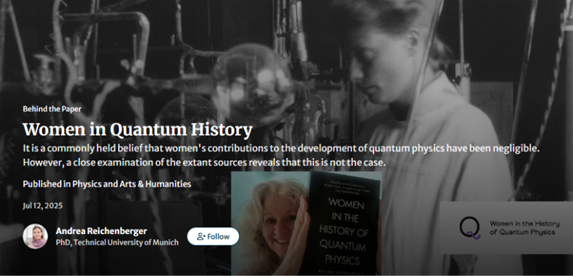
In a post sharing the stories behind an article published in Nature Reviews Physics, @Andrea Reichenberger challenges the common belief that women played only an insignificant role in the history of quantum physics. Based on years of research with the Women in the History of Quantum Physics group, she showcases how numerous female physicists made important contributions to the field in the early 20th century.
Rather than replacing male heroes with female ones, the blog argues for reshaping the historical narrative to more accurately reflect diverse contributions and move beyond the male-dominated story of the field. This reflection on overlooked voices also resonates with the spirit of Women’s Equality Day, reminding us that equality demands recognition.
Read the full blog to learn what motivated the author to start this study and discover the women who helped shape quantum history.
Curious to see how cooperation, fairness, and equality play out in real life? These blogs offer insights into pressing issues, from the power of collaboration and the human cost of conflict to the recognition of women’s contributions in science. Dive into the full blogs, get inspired, and join the conversation in the comment section. Active engagement is the first step to building a more inclusive, equitable, and humane world.
Further reading:
Follow what you love!
Now you can follow Topics and Communities that match your interests, connect with other members, and get a personalised Activity Feed and Digest. For more tips, check out our quick guide to navigating Research Communities.
Follow the Topic
-
Nature Reviews Gastroenterology & Hepatology

The basic, translational and clinical content in this journal is written by internationally renowned basic and clinical academics and researchers and targeted towards readers in the biological and medical sciences, from postgraduate level upwards.
-
Communications Psychology

An open-access journal from Nature Portfolio publishing high-quality research, reviews and commentary. The scope of the journal includes all of the psychological sciences.
-
Discover Cities

This is a fully open access, peer-reviewed journal that supports multidisciplinary research and policy developments across the field of urban science.
Ask the Editor – Collective decision-making
Got a question for the editor about Experimental Psychology and Social Psychology? Ask it here!
Continue reading announcementRelated Collections
With Collections, you can get published faster and increase your visibility.
Intensive Longitudinal Designs in Psychology
Publishing Model: Open Access
Deadline: Mar 31, 2026
Replication and generalization
Publishing Model: Open Access
Deadline: Dec 31, 2026



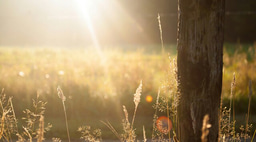

Please sign in or register for FREE
If you are a registered user on Research Communities by Springer Nature, please sign in